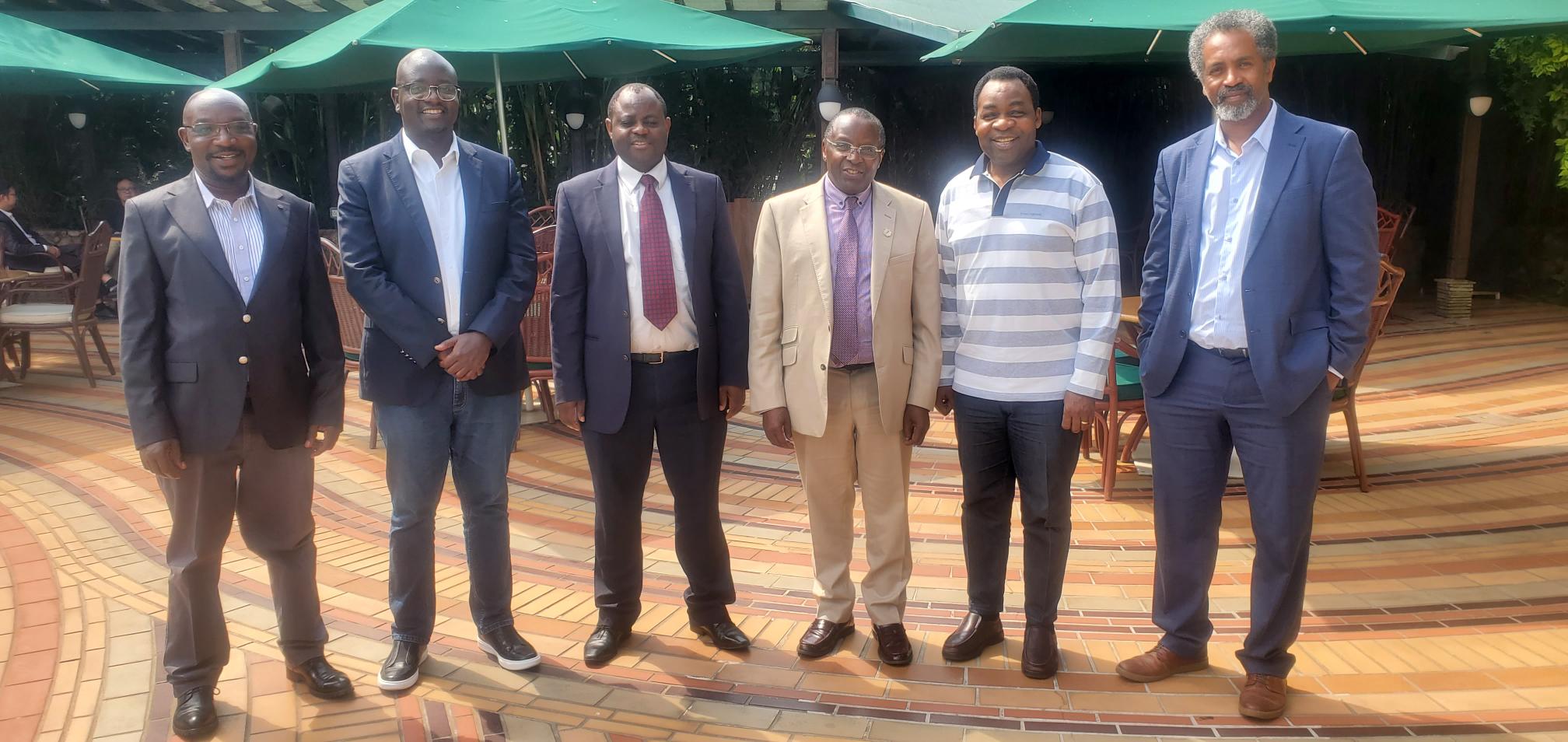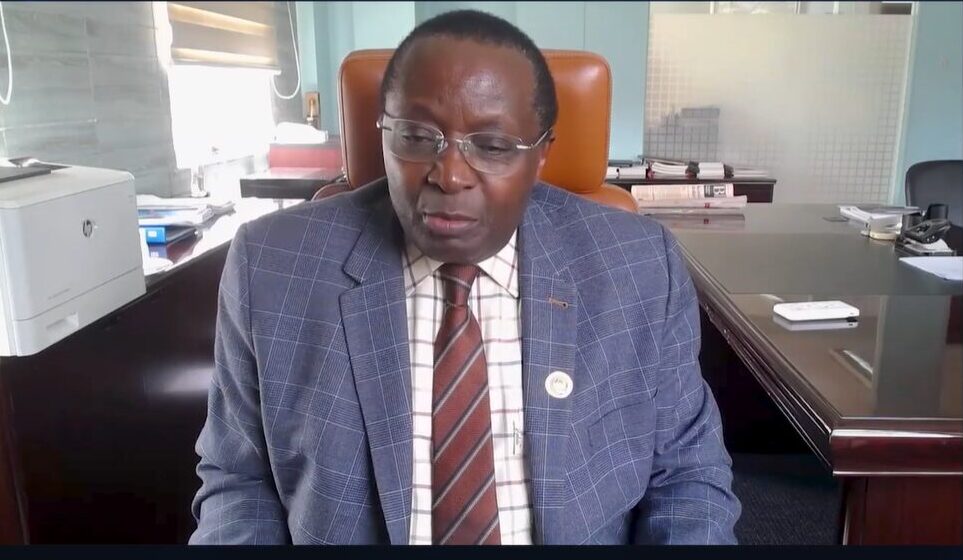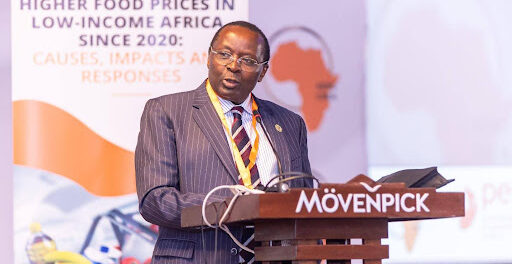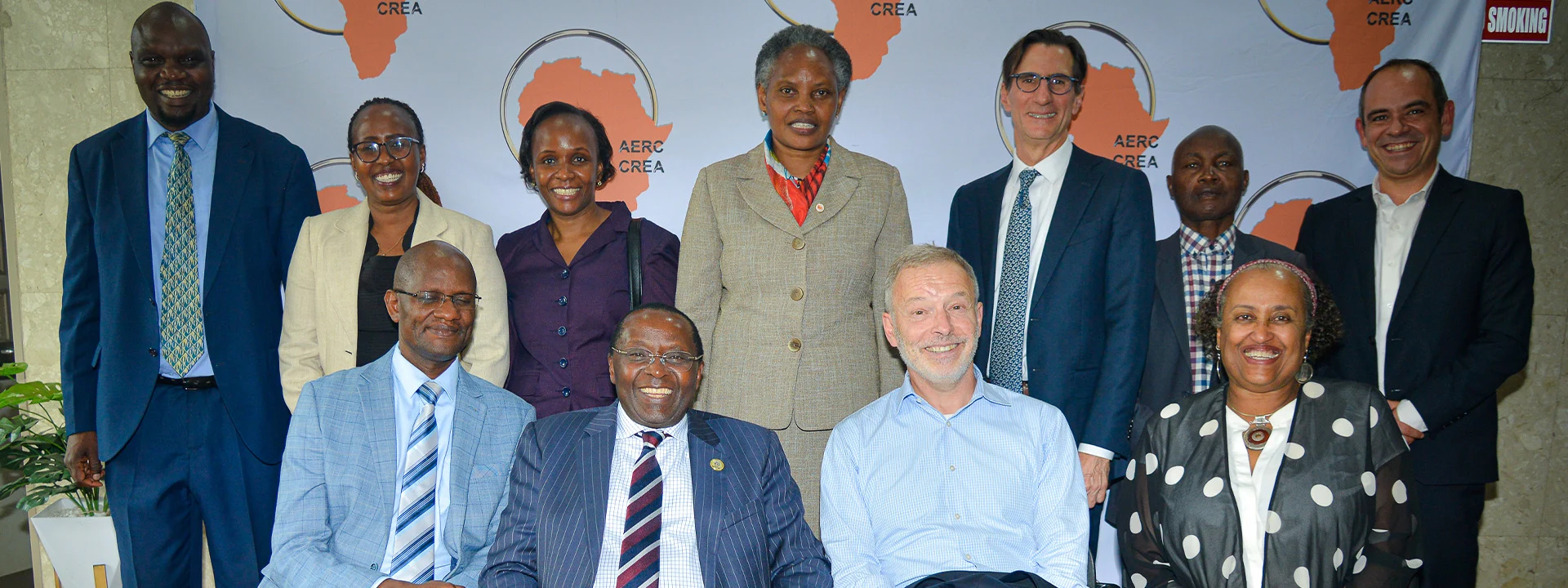

AERC and AfDB in dialogue to build the capacity of African policy makers
October 18, 2024The African Economic Research Consortium (AERC) and the African Development Bank (AfDB) had a fruitful dialogue on ways of supporting the development of the Africa Impact Analysis for Planning (AFRIPLAN) project.
Prof. Victor Murinde, AERC Executive Director said that the AERC would be happy to build the capacity of African policy makers in areas of skill shortage to assess the direct, indirect and induced impact of reforms, government spending and investment decisions. ‘There is an acute lack of skills in Africa on economic planning and sequencing reforms, as well as the key aspects of policy implementation, evaluation and coordination,” he said.
Dr. Eric K. Ogunleye, Director, African Development Institute said that the AfDB is considering a project for the development of an Africa impact analysis for planning tool. “The AFRIPLAN is conceived as a planning tool for measuring the comprehensive impacts of public and private investment and expenditures on incomes, , jobs, Gross Domestic Product (GDP), public revenue, local, regional and national outcomes,” he said.
If this partnership comes through, the AERC would strengthen the capacity of AfDB’s regional members states in assessing the impact of key economic and financial reforms and related policy decisions. The organization would be drawing on the vast network of AERC Fellows and experts to support the development of the AFRIPLAN.
Largely, the AFRIPLAN uses input-output analysis, focusing on sectoral interdependence and flow of funds through the economy. Unlike the conventional Computable General Equilibrium (CGE) modelling, AFRIPLAN does not adjust for changes in prices or supply and demand equilibrium. Its appeal lies in the fact that AFRIPLAN is generally less complex and more user-friendly compared to CGE models, making it accessible for non-specialists.
The AERC is well-equipped to execute AFRIPLAN due to its diverse network of skilled economists and development planning experts. With extensive experience in economic modeling and impact assessment, the AERC network experts possess a strong understanding of input-output (I-O) analysis and regional economic dynamics, essential for leveraging AFRIPLAN effectively.
Additionally, the AERC experts would bring valuable insights into the socio-economic contexts of various projects, ensuring that the analyses are not only methodologically sound, but also relevant to local conditions. This combination of expertise puts the AERC in a perfect position to conduct comprehensive economic impact assessments, provide actionable insights that can inform policy decisions and drive sustainable development initiatives across Africa.
Also present at this meeting were Dr. Seedwell Hove, Economist at AfDB, Dr. Abbi Kedir, AERC Director of Research, Lorian Egesa, Chief Finance Officer and Dr. Charles Owino, Manager Strategic Partnership & Resource Mobilization.
The AERC is a leader in policy-oriented economic research in the continent, and its biannual research workshops have become the largest gatherings of professional economists in sub-Saharan Africa. The Consortium is a public not-for-profit organization devoted to building capacity for economic policy research into problems pertinent to the management of economies in sub-Saharan Africa. The AERC is a network that builds capacity through three primary components: research, graduate training in economics, as well as communications and policy outreach. The organization integrates high quality economic policy research, postgraduate training, and policy outreach within a vast network of researchers, universities, and policy makers across Africa and beyond.
The African Development Bank (AfDB) is dedicated to financing the economic and social development of its African members countries. The AfDB’s mission is to fight poverty and improve living conditions on the continent through promoting the investment of public and private capital in projects and programmes that are likely to contribute to the economic and social development of the region. The primary function of AfDB is making loans and equity investments for the socio-economic advancement of the Regional Member Countries (RMC). The bank also provides technical assistance for development projects and programs as well as promoting investment of public and private capital for development.







